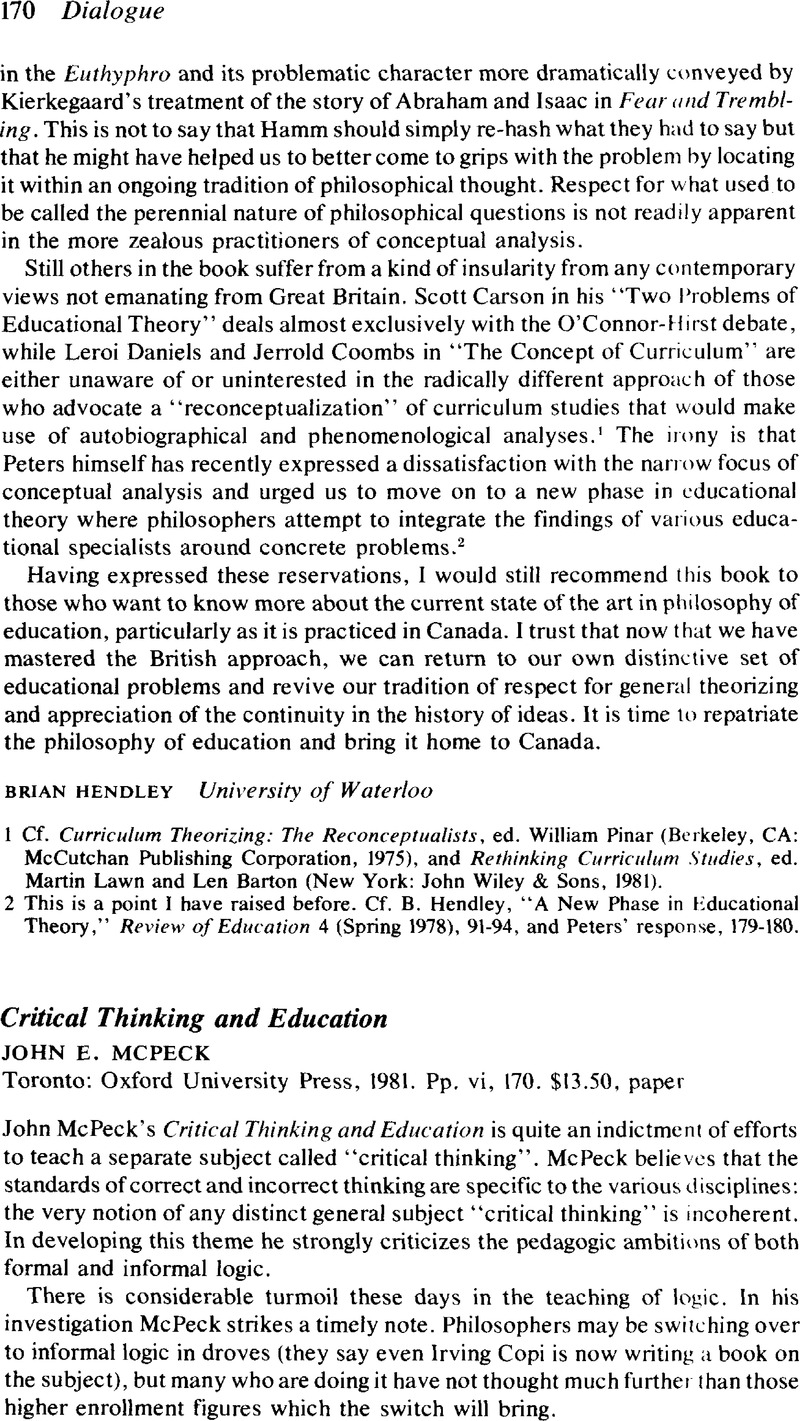Article contents
Critical Thinking and EducationJohn E. McPeck Toronto: Oxford University Press, 1981. Pp. vi, 170. $13.50, paper
Published online by Cambridge University Press: 05 May 2010
Abstract

- Type
- Book Reviews/Comptes rendus
- Information
- Dialogue: Canadian Philosophical Review / Revue canadienne de philosophie , Volume 22 , Issue 1 , March 1983 , pp. 170 - 175
- Copyright
- Copyright © Canadian Philosophical Association 1983
References
1 Toulmin, Stephen, The Uses of Argument (Cambridge University Press, 1958)Google Scholar.
2 Toulmin, Stephen, Rieke, Richard, and Janik, Allan, An Introduction to Reasoning (Macmillan, 1979)Google Scholar.
3 R. H. Johnson, “Toulmin's Bold Experiment”, Informal Logic Newsletter (March and June issues, 1981).
4 Johnson, R. H. and Blair, J. A., eds., “The Recent Development of Informal Logic”, in Informal Logic: the First International Symposium (Edgepress, 1980)Google Scholar.
5 For an example of such principles, see my “Textbook Accounts of Ad Hominem Need Revision”, forthcoming in Teaching Philosophy.
6 I mention ethics because some traditional fallacies (slippery slope, two wrongs, and tu quoque, for instance) pertain primarily to reasoning about the lightness or wrongness of actions and because issues in the ethics of belief bear on some of the pertinent epistemic considerations.
- 1
- Cited by


